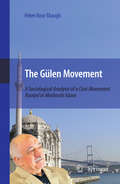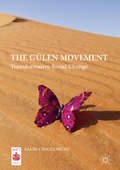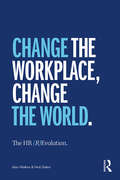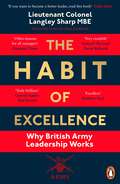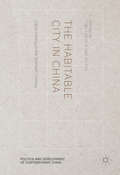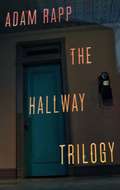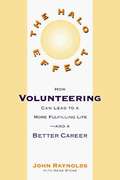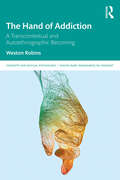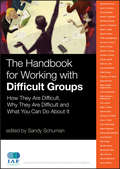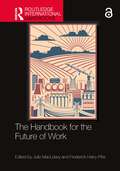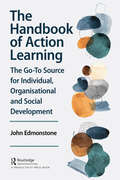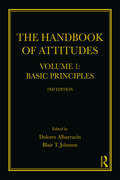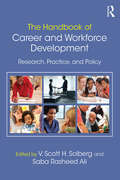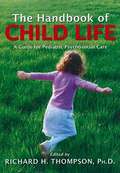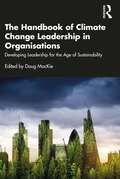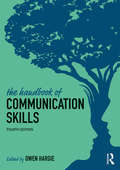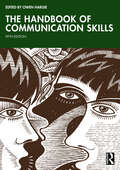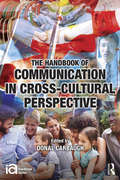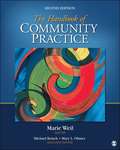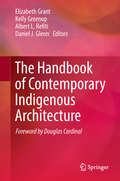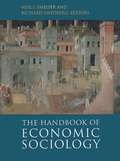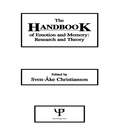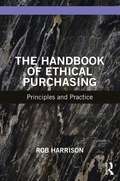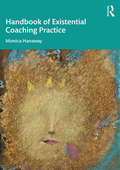- Table View
- List View
The Gülen Movement
by Helen Rose EbaughThis is a book about an Islamic movement, the Gülen Movement, that is rooted in a moderate version of Islam and that promotes interfaith and intercultural dialog and global peace. Based on interviews with supporters of the movement in Turkey and in the U.S. and visits to Gülen-inspired schools, hospitals, newspapers and relief organizations, the book describes a movement that has millions of supporters in Turkey and that has spread to over 100 countries on five continents.
The Gülen Movement: Transformative Social Change (Middle East Today)
by Salih CıngıllıoğluThis book presents findings from research into one of the world's most influential Islamic movements, the Gülen Movement, from the perspective of social transformation through adult education. At the core of research questions lies how the movement enrolls volunteers from all walks of life and transforms them to adopt its aims at the expense of their individual ideals. The book reveals the socio-psychological mechanisms that make such transformation possible by looking at how followers integrate weekly lectures and discussions on the theory and practice of Islam into their personal and social lives. The Gülen Movement offers a moderate interpretation of Islam and stresses the vitality of establishing communication with the members of all faiths. This book provides a window into how and why religion may roll into extremism by presenting findings from an opposite perspective: the participants in the research all define themselves as truly pious but do not even imply an act of violence in tens of hours of interviews. In short, the book weaves the strands of "Islamic," "movement," and "adult education" into a unified whole and limns the snapshot of a social movement, offering a comprehensive discussion of the role of adult education within the movement, as well as its transformative potential and its wider social and political implications.
The HR (R)Evolution: Change the Workplace, Change the World
by Alan Watkins Nick DaltonMany observers have suggested that capitalism is fast destroying our planet, concentrating power in a few big companies. Excessive short-termism, leveraged debt, digitisation, and disruption are the new normal. We stand at a critical juncture where the two paths ahead could lead to very different futures. One route could take us back to the harshest days of the early Industrial Revolution and the Great Depression. The other could lead to a world of abundance, equality, inclusivity, and prosperity for all. Which future awaits us will largely be determined by business, and HR (Human Resources) in particular. Books on HR tend to focus on HR practices and potential interventions, but they rarely look at the profession, how it evolved, and how and why those people practices were created. The HR (R)Evolution: Change the Workplace, Change the World describes the "Seven Great Waves" of change and explains how each wave impacted business. It explains how some companies are stuck in the past and how HR can break the deadlock if it understands what the future holds. This book is meant for senior business leaders or anyone currently working in HR who are grappling with the paradoxes of business today. It’s for leaders who recognise that people issues are the central challenge of our time. Whether we embrace the waves yet to come will determine whether we survive or regress, whether we flourish or flounder. The future is in our hands.
The Habit of Excellence: Why British Army Leadership Works
by Lt Col Langley SharpThe official British Army book on what makes its leadership so successful, and how to become a better leader yourself - whatever your field. ___________________'If you want to become a better leader, read this book' Eddie Jones'An extraordinary read for any leader. Truly brilliant' General Stanley McChrystal, author of Team of Teams'Excellent. Offers proven tools and strategies' Matthew Syed___________________ The Habit of Excellence is a unique insight into British Army leadership, explaining what makes it unique, what makes it so effective and what civilians can take from it to become better leaders themselves. Drawing on the latest research in military history, business, sociology, psychology and behavioural science, and with compelling illustration from British Army operations across the centuries, Lt Col Langley Sharp MBE goes beyond the latest leadership fads to distil into one peerlessly authoritative work the essence of leading and leadership from one of the world's most revered institutions.___________________'Excellent. It's hard to see how any leader, whatever their field, wouldn't benefit from reading and rereading it' New Statesman 'Offers lessons for all managers' Financial Times 'Valuable in any walk of life' General Sir Mike Jackson, former Chief of the General Staff 'Very readable. I could not recommend this exceptional book more' General The Lord David Richards, former Chief of the Defence Staff 'Comprehensive and clearly written' Karin von Hippel, Director-General of RUSI 'Terrific. Full of insights and lessons' General David Petraeus, former Director of the CIA
The Habitable City in China
by Toby Lincoln Xu TaoThis book offers a new perspective on Chinese urban history by exploring cities as habitable spaces. China, the world's most populous nation, is now its newest urban society, and the pace of this unprecedented historical transformation has increased in recent decades. The contributors to this book conceptualise cities as first providing the necessities of life, and then becoming places in which the quality of life can be improved. They focus on how cities have been made secure during times of instability, how their inhabitants have consumed everything from the simplest of foods to the most expensive luxuries, and how they have been planned as ideal spaces. Drawing examples from across the country, this book offers comparisons between different cities, highlights continuities across time and space--and in doing so may provide solutions to some of the problems that continue to affect Chinese cities today.
The Hadza: Hunter-Gatherers of Tanzania
by Frank W. MarloweThe Hadza, who inhabit an area of East Africa near the Serengeti and Olduvai Gorge, have long drawn the attention of anthropologists and archaeologists for maintaining a foraging lifestyle in a region that is key to understanding human origins.
The Hallway Trilogy
by Adam Rapp"Rapp remains a true man of the theater and a potent writer."--Time Out "To watch The Hallway Trilogy by Adam Rapp is to enter an alternate universe . . . a carnival of the desperate, the grotesque, the outrageous."--The New York Times "I knew in a single sentence that Adam was a writer the world was going to listen to for as long as he felt like writing. . . . Adam writes like nobody else, his fierce poetic power as inescapable as the doom that waits for his characters. The work is bleak and true, his touch that of a master in the making."--Marsha Norman Multi-talented artist and provocateur Adam Rapp shocks and disturbs, weaving themes of love, suffering, and redemption throughout this alarming yet heartening critical examination of societal change. Spanning one hundred years in one Lower East Side tenement hallway, this series of connected plays--Rose, Paraffin, and Nursing--is a dark and compelling exploration of what binds people together and drives them apart. Packed with searing dialogue and harrowing narratives, The Hallway Trilogy "bristles with humor" and "contains some of Rapp's most sensitive and mature writing" (The New York Times). Adam Rapp is a novelist, filmmaker, and an OBIE Award-winning playwright and director. His plays include the Pulitzer Prize finalist Red Light Winter, Nocturne, Stone Cold Dead Serious, Finer Noble Gases, Essential Self-Defense, and more. He is the author of many young adult novels such as Punkzilla, The Buffalo Tree, and Under the Dog, and the writer and director of the film Winter Passing, starring Zooey Deschanel, Will Ferrell, and Ed Harris.
The Halo Effect: How Volunteering Can Lead to a More Fulfilling Life-And a Better Career
by John Raynolds Gene StoneA "business book with a heart," <i>The Halo Effect</i> illustrates how inspiration in careers and in lives can be renewed by service to others. Volunteer work can help you learn new skills, meet new people, and develop a whole new perspective on your goals. A complete resource that outlines everything you need to know about volunteer work, <i>The Halo Effect</i> includes an appendix that lists and describes the best volunteer organizations that need your help today.
The Hand of Addiction: A Transcontextual and Autoethnographic Becoming (ISSN)
by Weston RobinsThe Hand of Addiction maps out addiction from an innovative and holistic perspective, challenging the pervasive discourses surrounding addiction in many fields. Using the metaphor of a hand, the author examines addiction through five conceptual lenses—biomedical, psychological, sociocultural, developmental, and spiritual.The book successfully integrates Gregory Bateson’s understanding of the human hand, and further extends it to the study of addiction, studying the relationships between the different fingers (lenses) to reveal how the study of addiction so far has been myopic and compartmentalized. Using an autoethnographic approach, the author constructs a transcontextual mapping of the potential of addiction, and challenges what we claim to know about addiction, aiming to understand addiction from a novel perspective. The book also discusses practical strategies that can be used to support those with addiction in various forms.An important contribution to the literature on addiction studies, this book will be of great interest to academics and postgraduate students in the fields of psychology, sociology, cultural studies and other related disciplines. It will also be relevant for those interested in the philosophy and ethnography of addiction or those working in mental health.
The Handbook for Working with Difficult Groups
by Sandy SchumanPraise for The Handbook for Working with Difficult Groups"Beginning with a conceptual framework useful to understand effective group functioning, The Handbook for Working with Difficult Groups continues with twenty chapters, each describing a common challenge a facilitator can face, examining the research available to understand the difficulty, and then offering pragmatic interventions a facilitator can use to deal with this challenge. A must-read for any group facilitator."-David Straus, founder, Interaction Associates"If you're looking for ways to make your team more productive, you'll find golden nuggets written just for your situation in The Handbook for Working With Difficult Groups. A compendium of research and sage advice, this book offers experienced insights into how to transform seemingly dysfunctional groups and avoid obstacles before you hit them. Should be in the library of any leader or facilitator!"-Tammy Adams, CPF, president, Chaosity LLC"This fine book contains a rich diversity of case studies, approaches and wise counsel from leading practitioners working with groups. It will help you to understand and facilitate effectively in even the most difficult situations."-Dale Hunter, author, The Art of Facilitation: The Essentials for LeadingGreat Meetings and Creating Group Synergy"Whether you are a facilitator, leader, or member of a group, you will gain surprising insights into why a group is difficult, and more importantly, how to recognize the cause of the difficulty and how to develop an effective response to move the group forward."-Gary Rush, CPF, president, MGR Consulting; chair, International Association of Facilitators (IAF)
The Handbook for the Future of Work (Routledge International Handbooks)
by Frederick Harry Pitts Julie MacLeavyThe Handbook for the Future of Work offers a timely and critical analysis of the transformative forces shaping work and employment in the twenty-first century.Focusing on the past two decades, the handbook explores how technological advancements, automation and a shifting capitalist landscape have fundamentally reshaped work practices and labour relations. Beyond simply outlining the challenges and opportunities of automation, the handbook integrates these emerging realities with established discussions of work. Importantly, it moves beyond dominant technology-centric narratives, probing into broader questions about the nature of capitalism in a time of crisis and the contestation for alternative economic models. With contributions from established and emerging authors, based in institutions around the world, the handbook offers a systematic overview of the developments that have sparked radical shifts in how we live and work, and their multifaceted impacts upon social relations and identities, practices and sectors, politics and environments.The handbook is unique in its exploration of the potential for economic transformations to reshape the centrality of work in our social and political imaginaries. A useful resource for students and researchers, the handbook serves as an essential guide to this new intellectual landscape.
The Handbook of Action Learning: The Go-To Source for Individual, Organizational and Social Development
by John EdmonstoneAction learning is one of the most prominent individual and organisational development approaches used in all parts of the world, including in over 70 member states of the United Nations. From its early beginnings in the 1970s, it has been adopted in private, public and third-sector organisations and has produced several variations. Used for leadership and management development, to support teamwork and problem-solving, and to encourage creative thinking, it can help to develop and enhance the learning capacity for individuals and organisations.Applied as a discrete activity focused on a priority need or on new or changed roles; as a linkage between more formal programs and the workplace or blended with other elements in a program, this book distils current and previous practice and theory to provide an up-to-date guide to action learning. The book will provide readers with an understanding of action learning, including the major elements, the choice of issues, the key skills, the role of the facilitator and applications organisation-wide. It will address such important aspects as how action learning can adapt to different national and regional cultures and how it can be evaluated. It will also offer a range of resources for further and deeper understanding.
The Handbook of Attitudes, Volume 1: 2nd Edition
by Dolores Albarracin Blair T. JohnsonAttitudes are evaluations of people, places, things, and ideas. They help us to navigate through a complex world. They provide guidance for decisions about which products to buy, how to travel to work, or where to go on vacation. They color our perceptions of others. Carefully crafted interventions can change attitudes and behavior. Yet, attitudes, beliefs, and behavior are often formed and changed in casual social exchanges. The mere perception that other people favor something, say, rich people, may be sufficient to make another person favor it. People’s own actions also influence their attitudes, such that they adjust to be more supportive of the actions. People’s belief systems even change to align with and support their preferences, which at its extreme is a form of denial for which people lack awareness. These two volumes provide authoritative, critical surveys of theory and research about attitudes, beliefs, persuasion, and behavior from key authors in these areas. The first volume covers theoretical notions about attitudes, the beliefs and behaviors to which they are linked, and the degree to which they are held outside of awareness. It also discusses motivational and cultural determinants of attitudes, influences of attitudes on behavior, and communication and persuasion. The second volume covers applications to measurement, behavior prediction, and interventions in the areas of cancer, HIV, substance use, diet, and exercise, as well as in politics, intergroup relations, aggression, migrations, advertising, accounting, education, and the environment.
The Handbook of Career and Workforce Development: Research, Practice, and Policy
by Saba Rasheed Ali V. Scott H. SolbergThe Handbook of Career and Workforce Development provides educators, researchers, and policy makers with information on evidence-based programs and activities. Chapters describe ways that current research can be used to promote the design of more effective career development programs and services at local, state, and national levels. Promising career development practices applicable to a range of settings and special populations are identified, as are strategies for communicating evidence in ways that influence career and workforce development public policy. The Handbook of Career and Workforce Development can be used by policy makers and grant program officers to identify key career development ingredients that should be considered in proposals; researchers seeking to make their career development research relevant and practical; and practitioners implementing or advocating for career development programs and services.
The Handbook of Child Life: A Guide for Pediatric Psychosocial Care
by Richard H. ThompsonIt has been said that the moral test of a society is how it treats its most vulnerable citizens. Those who enter the field of child life daily encounter those in our society who are among the most vulnerable . . . vulnerable because of their age and their ways of interpreting the world, vulnerable because of their physical circumstances, vulnerable because of the unfamiliar they encounter, vulnerable at times because of additional barriers such as language, poverty or prejudice. Yet, the child life specialist understands that each individual, despite the vulnerabilities he or she may bring to an encounter, also brings strength and resiliency. The task of the child life specialist is to build upon those strengths and to minimize individual vulnerability and maximize the growth of the individual. This book addresses the most important aspects of the practice of child life. The book is geared toward an audience beyond the introductory level and includes information on the state of the art in each chapter covered. Wherever possible, the book demonstrates application of the contents in practice through case studies. The goal of this text is to assist in this process, drawing upon the expertise of leading figures in the field to help provide child life specialists, and other allied health professionals, with the knowledge and skills they will need to accomplish this important task. Book jacket.
The Handbook of Climate Change Leadership in Organisations: Developing Leadership for the Age of Sustainability
by Doug MacKieClimate change is one of the most significant and challenging problems we face today, and many organisations have recognised their responsibility in reducing emissions and environmental degradation and regenerating biodiversity. However, conventional leadership has failed to respond adequately to the magnitude of the threat, and a profound change in corporate leadership is required to substantively cut emissions and change climate policy to minimise further destructive environmental impact. This book sets out the qualities and approaches needed by leaders to successfully develop and implement climate change mitigation and adaptation policies. Bringing together the foremost experts in climate change leadership from business, leadership, psychology and coaching backgrounds, this book addresses the failures of current leadership practice and proposes a variety of models of how climate change leadership capabilities can be effectively developed in organisations. It is structured around four concepts: foundations, which includes models of environmental, ecological and evolutionary leadership; transitions, which looks at transformational and ethical models that are being repurposed for the age of sustainability; progressions, which explores innovative models that are being developed for the current age including systems, adaptation and maturity-based models of leadership; and actions, which includes models of sustainable goal setting and climate leadership coaching and development. The book is written for corporate leaders, researchers and educators and will be an invaluable addition to the leadership curriculum and executive development programmes to help the next generation of leaders respond to global challenges.
The Handbook of Communication Skills
by Owen HargieThe Handbook of Communication Skills is recognised as one of the core texts in the field of communication, offering a state-of-the-art overview of this rapidly evolving field of study. This comprehensively revised and updated fourth edition arrives at a time when the realm of interpersonal communication has attracted immense attention. Recent research showing the potency of communication skills for success in many walks of life has stimulated considerable interest in this area, both from academic researchers, and from practitioners whose day-to-day work is so dependent on effective social skills. Covering topics such as non-verbal behaviour, listening, negotiation and persuasion, the book situates communication in a range of different contexts, from interacting in groups to the counselling interview. Based on the core tenet that interpersonal communication can be conceptualised as a form of skilled activity, and including new chapters on cognitive behavioural therapy and coaching and mentoring, this new edition also places communication in context with advances in digital technology. The Handbook of Communication Skills represents the most significant single contribution to the literature in this domain. Providing a rich mine of information for the neophyte and practising professional, it is perfect for use in a variety of contexts, from theoretical mainstream communication modules on degree programmes to vocational courses in health, business and education. With contributions from an internationally renowned range of scholars, this is the definitive text for students, researchers and professionals alike.
The Handbook of Communication Skills
by Owen HargieThe Handbook of Communication Skills is recognised as one of the core texts in the field of communication, offering a state-of-the-art overview of this rapidly evolving field of study.The fifth edition of this bestselling book situates communication in a range of different contexts, from interacting in groups to the counselling interview. It covers topics such as non-verbal behaviour, listening, negotiation, interacting in groups and mentoring. This new edition has been fully revised and updated and includes a brand new chapter on digitally mediated communications in social and working environments, as well as newly written chapters on humour and laughter in communication, and persuasion. Based on the core tenet that interpersonal communication can be conceptualised as a form of skilled activity, the book looks at core communication skills and how these can be applied in specific contexts, expertly combining theory with practice.This handbook provides a rich mine of information for use in a variety of contexts, from theoretical mainstream communication modules on degree programmes to vocational courses in health, business and education. With contributions from an internationally renowned range of scholars, this is the definitive text for students, researchers and professionals alike.
The Handbook of Communication in Cross-cultural Perspective (ICA Handbook Series)
by Donal CarbaughThis handbook brings together 26 ethnographic research reports from around the world about communication. The studies explore 13 languages from 17 countries across 6 continents. Together, the studies examine, through cultural analyses, communication practices in cross-cultural perspective. In doing so, and as a global community of scholars, the studies explore the diversity in ways communication is understood around the world, examine specific cultural traditions in the study of communication, and thus inform readers about the range of ways communication is understood around the world. Some of the communication practices explored include complaining, hate speech, irreverence, respect, and uses of the mobile phone. The focus of the handbook, however, is dual in that it brings into view both communication as an academic discipline and its use to unveil culturally situated practices. By attending to communication in these ways, as a discipline and a specific practice, the handbook is focused on, and will be an authoritative resource for understanding communication in cross-cultural perspective. Designed at the nexus of various intellectual traditions such as the ethnography of communication, linguistic ethnography, and cultural approaches to discourse, the handbook employs, then, a general approach which, when used, understands communication in its particular cultural scenes and communities.
The Handbook of Community Practice
by Marie Weil Mary L. Ohmer Michael ReischThe Second Edition of The Handbook of Community Practice is expanded and updated with a major global focus and serves as a comprehensive guidebook of community practice grounded in social justice and human rights. It utilizes community and practice theories and encompasses community development, organizing, planning, social change, policy practice, program development, service coordination, organizational cultural competency, and community-based research in relation to global poverty and community empowerment. This is also the first community practice text to provide combined and in-depth treatment of globalization and international development practice issues--including impacts on communities in the United States and on international development work. The Handbook is grounded in participatory and empowerment practices, including social change, social and economic development, feminist practice, community-collaborative, and engagement in diverse communities. It utilizes the social development perspective and employs analyses of persistent poverty, asset development, policy practice, and community research approaches as well as providing strategies for advocacy and social and legislative action. The handbook consists of forty chapters which challenge readers to examine and assess practice, theory, and research methods. As it expands on models and approaches, delineates emerging issues, and connects policy and practice, the book provides vision and strategies for local to global community practice in the coming decades. The handbook will continue to stand as the central text and reference for comprehensive community practice, and will be useful for years to come as it emphasizes direction for positive change, new developments in community approaches, and focuses attention on globalization, human rights, and social justice. It will continue to be used as a core text for multiple courses within programs, will have long term application for students of community practice, and will provide practitioners with new grounding for development, planning, organizing, and empowerment and social change work.
The Handbook of Contemporary Indigenous Architecture
by Kelly Greenop Elizabeth Grant Albert L. Refiti Daniel J. GlennThis Handbook provides the first comprehensive international overview of significant contemporary Indigenous architecture, practice, and discourse, showcasing established and emerging Indigenous authors and practitioners from Australia, Aotearoa New Zealand, the Pacific Islands, Canada, USA and other countries. It captures the breadth and depth of contemporary work in the field, establishes the historical and present context of the work, and highlights important future directions for research and practice. The topics covered include Indigenous placemaking, identity, cultural regeneration and Indigenous knowledges. The book brings together eminent and emerging scholars and practitioners to discuss and compare major projects and design approaches, to reflect on the main issues and debates, while enhancing theoretical understandings of contemporary Indigenous architecture.The book is an indispensable resource for scholars, students, policy makers, and other professionals seeking to understand the ways in which Indigenous people have a built tradition or aspire to translate their cultures into the built environment. It is also an essential reference for academics and practitioners working in the field of the built environment, who need up-to-date knowledge of current practices and discourse on Indigenous peoples and their architecture.
The Handbook of Economic Sociology: Second Edition
by Neil J. Smelser and Richard SwedbergThe Handbook of Economic Sociology, Second Edition is the most comprehensive and up-to-date treatment of economic sociology available. The first edition, copublished in 1994 by Princeton University Press and the Russell Sage Foundation as a synthesis of the burgeoning field of economic sociology, soon established itself as the definitive presentation of the field, and has been widely read, reviewed, and adopted. Since then, the field of economic sociology has continued to grow by leaps and bounds and to move into new theoretical and empirical territory. The second edition, while being as all-embracing in its coverage as the first edition, represents a wholesale revamping. Neil Smelser and Richard Swedberg have kept the main overall framework intact, but nearly two-thirds of the chapters are new or have new authors. As in the first edition, they bring together leading sociologists as well as representatives of other social sciences. But the thirty chapters of this volume incorporate many substantial thematic changes and new lines of research--for example, more focus on international and global concerns, chapters on institutional analysis, the transition from socialist economies, organization and networks, and the economic sociology of the ancient world. The Handbook of Economic Sociology, Second Edition is the definitive resource on what continues to be one of the leading edges of sociology and one of its most important interdisciplinary adventures. It is a must read for all faculty, graduate students, and undergraduates doing work in the field. A thoroughly revised and updated version of the most comprehensive treatment of economic sociology available Almost two-thirds of the chapters are new or have new authors Authors include leading sociologists as well as representatives of other social sciences Substantial thematic changes and new lines of research, including more focus on international and global concerns, institutional analysis, the transition from socialist economies, and organization and networks The definitive resource on what continues to be one of the leading edges of sociology and one of its most important interdisciplinary adventures A must read for faculty, graduate students, and undergraduates doing work in the field
The Handbook of Emotion and Memory: Research and Theory
by Sven-This important volume defines the state of the art in the field of emotion and memory by offering a blend of research review, unpublished findings, and theory on topics related to its study. As the first contemporary reference source in this area, it summarizes findings on implicit and explicit aspects of emotion and memory, addresses conceptual and methodological difficulties associated with different paradigms and current procedures, and presents broad theoretical perspectives to guide further research. This volume articulates the accomplishments of the field and the points of disagreement, and gives the brain, clinical, and cognitive sciences an invaluable resource for 21st-century researchers. Citing and analyzing the results of experiments as well as field and case studies, the chapters are organized around methodological approaches, biological-evolutionary perspectives, and clinical perspectives, and bring together experts in neuroscience, and both cognitive and clinical psychology. Questions addressed include: * What is the nature of emotional events and what do we retain from them? * Is there something about emotional events that causes them to be processed differently in memory? * Do emotional memories have special characteristics that differ from those produced by "ordinary" memory mechanisms or systems? * Do people with emotional disturbances remember differently than normal people? * Which factors play the most crucial role in functional amnesia?
The Handbook of Ethical Purchasing: Principles and Practice
by Rob HarrisonFrom boycotts of plastics and palm oil by consumers, to the tracking of carbon footprints and modern slavery in their supply chains by businesses, buying ethically has now fully captured the public interest. The Handbook of Ethical Purchasing is designed to help both ordinary people and industry professionals to understand this new movement, its political background and, most importantly, how to become involved more effectively By looking in turn at sustainable supply chain management by companies, green public procurement by governments, and the ethical choices made by consumers, this book operates as a practical handbook for people across all industries and sectors to become involved in the important changes that need to be made. It provides the key principles, language, and techniques that companies, campaigners, certification schemes, and regulators are beginning to use to address the moral, practical, and political problems that commonly occur in this transition to more ethical economies. Written by a leading authority on ethical consumption, Rob Harrison, the book provides the reader with the tools to operate with confidence and effectiveness in an easy-to-access format. It also provides a useful structure to understand this new subject area for students of marketing, supply chain management, and business studies generally.
The Handbook of Existential Coaching Practice
by Monica HanawayIn The Handbook of Existential Coaching Practice, Monica Hanaway presents a complete introduction to existential coaching, focusing on how coaches can incorporate key skills in all aspects of their practice. Practical and theoretical, the book explores how existential thought can offer a fresh re-orientation of coaching practice that embraces uncertainty, working towards a deeper understanding of the client’s world and the challenges they face in the twenty-first century. This comprehensive guide is presented in two parts, bringing together theoretical coaching models and Hanaway’s extensive practical experience. In Part 1, Hanaway begins by clearly exploring what is meant by existential coaching and places it in the context of contemporary coaching culture, illuminating the key philosophical elements of the existential coaching approach and the differences between existential coaching and existential psychotherapy. In Part 2, Hanaway draws from her own experience and presents case studies to demonstrate how coaches can build relationships with clients, enabling them to face existential dilemmas in their organisational and social life to become their authentic self. She introduces key existential concepts relating to authenticity, relatedness, freedom, responsibility, values and beliefs, and encourages the reader to explore how these are relevant to the coaching process. The book includes case studies, questioning and reflective exercises to encourage development of good practice and build the skills necessary all the way through a coaching relationship, from contracting to ending. This is the first guide of its kind, with Hanaway playing an instrumental role in the development and growth of existential coaching as well as designing the one of the world’s first University-accredited MA programmes. It will be essential reading for coaches in practice and in training, as well as students and academics of applied philosophy and psychology.
